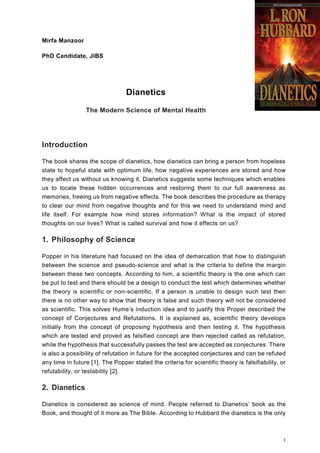The Basic Principles Of Dianetics
The Basic Principles Of Dianetics
Blog Article
The Greatest Guide To Dianetics
Table of ContentsHow Dianetics can Save You Time, Stress, and Money.Fascination About DianeticsDianetics - QuestionsThe Basic Principles Of Dianetics
I could not ever not wish to receive anything that enters your mind for you- if it was or else, I would not be sitting here with you, doing this. I not only might never ever have a trouble, or not wish to listen to something that comes to mind for you, yet I'm totally excited to know every concept, every thought, every picture or sensation that emerges or manifests for you- do not ever before think or else, and if somehow you do, please simply let me recognize! Sometimes, you might have a thought, and photo, concept or event appear that does not seem to address the concern, or relate to it, however nevertheless, always do tell me concerning it, and as we continue, the significance will certainly emerge for you.This is fundamental in the basis of handling, and the topic of this discussion: the fundamental duties of the counselor and the customer: The standard role of the therapist is, as opposed to "basic training", not to regulate, which means to impose and/or inhibit, however to rather function from the basis of EMPOWERING THE CUSTOMER.

All About Dianetics
John Mcmasters shared this basic reality splendidly well in among his lectures on Power processing, where he clarifies just how he was asked what this "unique knack" was that he had for giving such wonderful sessions; he had to think of that for a minute, and identified that it was what he had not been doing, along with what he was doing: he had not been reviewing, evaluating, computer, or actually, creating any thoughts, not to mention verbal expressions, after giving the command and while awaiting the computer to finish their solution to their contentment; he was, merely and only, existing with the PC, and completely interested.
The duty of the therapist, showed; that was his "special knack". I have had my very own experience which educated me this well, extremely at an early stage in the game. In 1982, having actually lately finished my training and internship on New Period Dianetics, I was running this on a COMPUTER, and there was a factor in the session where (being a bit damp behind the ears not yet having lots of hours under my belt as an expert auditor) the computer appeared to be "taking also lengthy" to reveal anything verbally after I gave him a command.
This secret transformed out to be one of the most important contribution that John ever before made to the topic of therapy or bookkeeping (Dianetics). In my simple point of view, it is the best payment that any person has ever made to these subjectsthe application is completely non-judgemental, non-evaluative, and lacking any type of idea, guidance or opinion.no preconceived schedule for people, or 'degrees' that they should do
In Idenics, the only source of information concerning a client is the specific client. In Scientology we prided ourselves on not examining for individuals. All that really implied was that the auditor did not Vocally assess for the PC in session. The registrars and principles officers assessed for the computer.
The 6-Minute Rule for Dianetics

Anybody who had ever seen John audit can not help but observe a special top quality in his auditing."The customer's standard role is to be there with the purpose of moving in the instructions of their spiritual objectives, and to freely and fully reveal and experience whatever shows up for them in addressing the concerns and executing the guidelines in the processing.
This is something to process as required. Yet also, people frequently have prior experience and/or brainwashing in auditing/processing which, in some ways, and to some extent, actually misdirects them right into attitudes, ideas and actions patterns that protect helpful resources against the complete understanding of these roles, therefore they will certainly often tend to hinder the expressing of what enters your mind, as in the instances offered over. * The initial, and maybe primary examples of mis-indoctrination leading to much less than entirely smooth and reliable sessions, can be located in particular facets of the training routines, or "TR's":"TR's" are frequently a person's very first, or a minimum of early, experience in Scientology, and while I will take place to describe what I see as the defects in idea and practice, however, have a tendency to be substantially restorative, done as they are provided (Hubbard insists that "TR's are not refining, they are educating", yet factually, they are both processing AND training)
Alan Walter made similar monitorings, and improved these with his "Presence Processes". There is no "failing", and no denial of the truth of this being handling. The focus, as it should be, gets on experiencing the various other person's visibility. All the symptoms which get a "fail" in doing "TR-0" are merely the being's efforts to withstand the other person's visibility, and as opposed to being harassed and nagged with "Flunk", which imposes "failing!" on the being, one just needs to be urged to "stick their feet in the water a little deeper", to significantly refurbish their capacity and desire to fully share and experience "being right here", or go right here "visibility", with others.
Unknown Facts About Dianetics

Report this page